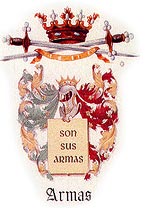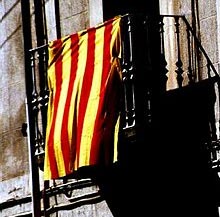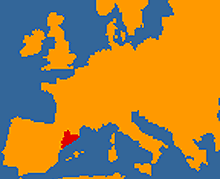
| Arpino & its people |
| Old town of Arpino |
| Reas of Italy |
| Reas Spain & France |
| Reas of Britain |
| Reas around the world |
| Conclusion |
| Further links |
| Home |
|
Did the REA surname enter Italy via the Normans, French Angevins, or the Spanish? Are we the descendents of French Angevin soldiers, since the Angevins ruled Italy from 1266 to 1442, or are we the descendents of the Spanish soldiers who occupied central and southern Italy for three centuries? On the other hand Italians have been emigrating from Italy for centuries; there was a large Italian community in Spain, and many of the armies of Northern Europe had Italian soldiers. The Spanish during their rule of Southern Italy would pressgang unsuspecting young Italian men into the Spanish navy and army. Many of the early Italian adventurers, like Columbus, took part in the European expansion across the Atlantic in the pay of other nations, since at that time the Italian nation as a whole did not exist. Their explorations helped open up the west for the Spaniards, and helped the French and the English lay claim to North America. So Italians were under the sponsorship of French, English, Portuguese, and Spanish governments as explorers, sailors, soldiers and missionaries. So one can see that surnames can travel beyond their place of origin to other parts of the world. And as people change so to do surnames; the original bearer lands and settles in a corner of the world, and within a generation the origin of that person changes; similarly the surname, in terms of spelling or pronunciation. For example REA is pronounced as RAY in Britain. In Italy, Spain, and France REA is pronounced as RR-AYA or REAHA. In Spain the surname REA originates in the Basque country of northern Spain in the provinces of Alava and Vizcaya, and is derived from the old Basque ‘’Larre‘’ meaning ‘’meadow‘’. It is also said to be of toponymic origin, which means it derives its origin from a place name, in this case the bearer lived or held land in the town of Larrea, a placename in the Basque country of northern Spain. Thus the surname REA signifies ‘’one from Larrea‘’. It is possible that the abbreviation of this name from Larrea to Rea was the result of the mistaken belief that the first element ‘’la‘’ was in fact the Spanish feminine definite article ‘’la’’, rather than being the place name itself. Alternatively the surname Rea may be of nickname origin. Nickname surnames are those names that derive their origin from a physical characteristic or personal attribute of the initial bearer. In this instance, the surname Rea is the feminine form of the Spanish word ‘’Reo‘’, derived from the Latin ‘’Reus’’ meaning ‘’accused’’, in this case referring to a woman.
Spanish variants of the surname REA include ‘Larrea’, ‘de la Rea’, ‘de Rea’, and ‘Reo’. The earliest references to the Rea surname or its variants include numerous records of the Larrea families of the Basque country, whose ancestral homes where located in various places of each of its provinces (Alava, Biscay, Guipuzcoa, and Navarre). References to ‘’de la Rea’’ include a record of one Isabel de la Rea y Lozano who is listed among the members of the Spanish military order of Carlos 3rd. The REA family of Spain where granted a coat of arms and it is listed in the Repertorio de Blasones de la Comunidad Hispanica. In France the Rea family held many castles and much land; were they descendants of the French Angevins who ruled over much of northern Europe; the surname REY is of French Angevin origin. In France REA originally comes from near Breton. It is also of Latin origin from REX meaning KING. RE, in Spanish and Italian also means ‘King’.
|
|


